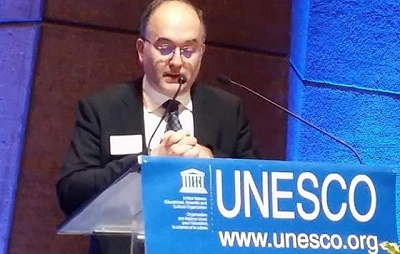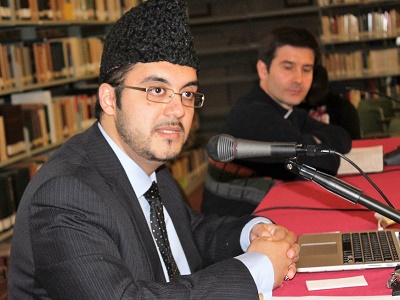Islamochristiana 46
The latest encyclical of Pope Francis, Fratelli tutti, published for the feast of St. Francis of Assisi (cfr. DOSSIER pp. 465-474), was matured as an expansion of the Document on Human Fraternity signed in Abu Dhabi together with the Grand Imam of Al-Azhar, Ahmad al-Tayyeb, on 4 February 2019. Issue 45 (2019) of Islamochristiana had been dedicated to this historic document and the present issue continues in the same direction, analyzing some of the recent Islamic declarations “for” inter-religious dialogue.
Following this path, two articles trace the history of the declarations over the last twenty years: Card. Michael Fitzgerald discerns the thread that links the 2004 Amman Message to the Abu Dhabi Document and finally to the encyclical Fratelli tutti; Patrice Brodeur broadens the field of investigation highlighting new aspects that are not limited to the religious sphere. Four articles are singly dedicated to the analysis of particular documents: Giancarlo Anello studies the Charter of Medina; Gianluca Parolin analyzes the genesis, context and impact of the concept of citizenship in the Marrakesh Declaration; Wael Farouq highlights some significant aspects of the Charter of Makkah (Mecca); Wasim Salman reads and comments on a 2020 document produced by al-Azhar.
Some other contributions make particularly rich this issue of Islamochristiana: the section dedicated to Islamic-Christian dialogue in history carries the articles of Michel Lagarde on a particularly difficult linguistic construction in the Qur’ān and of Anna Canton on an interesting argument by Riccoldo da Montecroce regarding the falsification of the Scriptures. Turning to more recent times, Diego Sarrió Cucarella analyzes the problematic relations of Card. Lavigerie, founder of the Missionaries of Africa, with Islam; David Bond considers the contribution to culture of Catholic missionaries in the period prior to the independence of Tunisia, and Livia Passalacqua reconstructs, through unpublished correspondence, the genesis of Christian de Chergé’s contribution to the Journées romaines of 1989. For the section dedicated to Islamic-Christian dialogue in the current context, Gabriel Said Reynolds offers a noteworthy contribution on the question of the presence or absence of the notion of original sin in the Qur’ān; Ignazio De Francesco presents a synthesis of some of the new and main ethical issues that Islam is called to face; Stéphane Delavelle reflects on the challenges facing the Church on Islamic-Christian dialogue starting from Moroccan situations and trajectories; Andrea Mandonico proposes the figure of Charles de Foucauld as a “universal brother”, cited also as an example in Pope Francis’s encyclical Fratelli tutti. For the section on current encounters between Christians and Muslims in the world, Patrick Ryan presents the enticements of proselytism in the Islamic and Christian context of Africa, while Brigitte Proksch examines the situation of Islam in Austria.
Finally, a rich harvest of studies is followed by an equally rich collection of documents, declarations, meetings, collected in the section Notes and documents. A large number of reviews of books dealing with Muslim-Christian relations and short notes on some books received into the library of the PISAI conclude this issue of Islamochristiana.





















